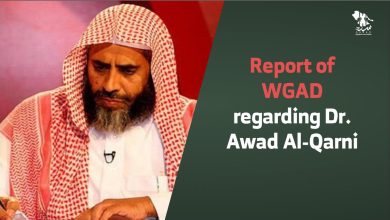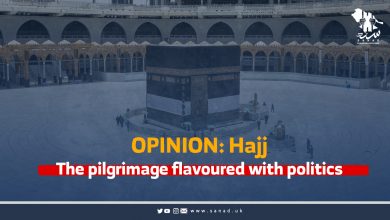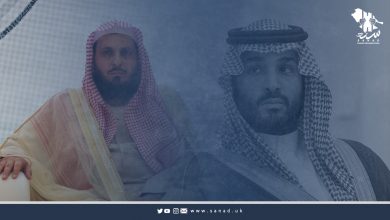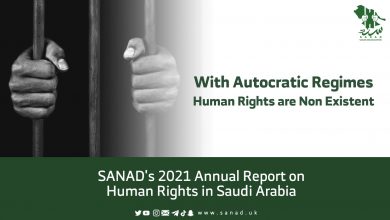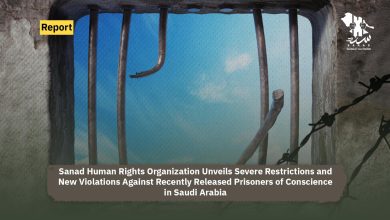
Saudi Crown Prince’s Visit to Washington: Have Attempts to Whitewash His Rights Record Worked?
On 18 November 2025, Saudi Crown Prince Mohammed bin Salman arrived in Washington on his first official visit to the United States since the 2018 assassination of journalist Jamal Khashoggi inside the Saudi consulate in Istanbul. The visit comes amid ongoing efforts by the Crown Prince to mitigate the impact of the crime and rebuild his image on the international stage.
During a joint press conference with U.S. President Donald Trump, the Crown Prince was asked directly about the Khashoggi case. Trump quickly rushed to defend him, claiming that Mohammed bin Salman had no knowledge of the killing. This position contradicts the U.S. intelligence assessment released in 2021, which concluded that the Crown Prince approved the operation to capture or kill Jamal Khashoggi. Moreover, the structure of power in Saudi Arabia makes it virtually impossible for an operation of this scale to occur without his knowledge, given his full control over all state authorities.
In his response, the Crown Prince stated that he had taken steps to ensure that such an incident would not be repeated. However, this is merely an attempt to evade accountability and contradicts the current situation in Saudi Arabia, where human rights violations and killings against citizens and those expressing their opinions have continued under his leadership. Executions have reached unprecedented levels, including hundreds of politically motivated executions—among them the execution of journalist Turki al-Jasser last June and the execution of Dhafer al-Shehri last year over a single tweet.
Despite extensive efforts to reintegrate Mohammed bin Salman into the U.S. political landscape, his visit was met with broad rejection and public criticism from numerous members of Congress. This report highlights the most significant of these positions.
1. Rejection of Normalization and Attempts to Whitewash the Crown Prince’s Abusive Record
Several U.S. lawmakers expressed their opposition to any political normalization with the Saudi Crown Prince, warning of the dangers of legitimizing the grave human rights violations committed under his rule.
Representative Summer Lee described welcoming Mohammed bin Salman as an act that ignores corruption, human rights abuses, and “the killing of an American journalist.” She stressed that integrating human rights violators into official relations and selling them weapons despite their record of repression sets a dangerous precedent.
Senator Bernie Sanders pointed to the extensive record of crimes committed under Mohammed bin Salman’s leadership, including systematic starvation in Yemen, record-high executions, and the killing of journalists. He argued that honoring the Crown Prince sends a clear message of support for authoritarianism around the world.
Senator Elizabeth Warren also criticized the official celebration of the Crown Prince, noting that intelligence information indicates he ordered the killing of journalist Jamal Khashoggi.
Representative Ed Davey emphasized that defending journalists must remain a consistent principle in the face of authorities that repress them.
Representative Lloyd Doggett stated that defending Mohammed bin Salman is effectively a justification for Khashoggi’s assassination and condemned granting advanced military deals to an official implicated in human rights abuses, describing it as “a reward for crime and violations.”
Representative Dan Goldman warned that ignoring U.S. intelligence in the Khashoggi case reflects the danger of subordinating U.S. foreign policy to financial interests. He stressed that Khashoggi’s murder cannot be treated as a minor incident or justified under the pretext of investment.
Representative Bill Foster condemned welcoming Mohammed bin Salman despite assessments concluding his involvement in Khashoggi’s killing.
Representative Jim McGovern emphasized that Khashoggi was a journalist with conviction, and that his killing and dismemberment were a direct result of using state power to silence critical voices. He cautioned against any political engagement that overlooks these facts.
Representative Raja Krishnamoorthi stated that Khashoggi was killed for speaking the truth and that welcoming someone implicated in the crime is “an insult to a free press.”
2. Legislative Measures to Hold the Crown Prince Accountable
Congressional reactions extended beyond condemnation. Senator Tim Kaine announced the introduction of legislation requiring the U.S. government to hold Saudi Arabia accountable for the murder of Jamal Khashoggi and other human rights abuses.
Representative Eugene Vindman revealed that during his service on the National Security Council, he became aware of a phone call between the former U.S. president and the Crown Prince following the Khashoggi murder. He publicly called for the release of that call so that Khashoggi’s family and the public can learn the content of official communications related to the crime.
Senator Ed Markey called for holding Mohammed bin Salman accountable, including an official acknowledgment of the crime and an apology to Khashoggi’s family. He argued that arms deals and ceremonial receptions ignore the reality of the premeditated killing of a journalist.
SANAD’s Position
SANAD Human Rights Organization commends the position of U.S. lawmakers who rejected attempts to whitewash the image of Mohammed bin Salman. The organization considers these stances an important step in countering President Donald Trump’s narrative, which seeks to overlook the Crown Prince’s severe human rights violations.
SANAD stresses that any normalization with Mohammed bin Salman deliberately ignores his responsibility for crimes committed against critics, dissidents, and innocent citizens inside and outside Saudi Arabia. These include the assassination of Jamal Khashoggi, the killing of journalist Turki al-Jasser, the execution of Dhafer al-Shehri over a tweet, and the mass executions carried out under his rule.
The organization affirms that the responsibility of the U.S. government and the international community does not end with statements and symbolic gestures. It requires concrete action to hold Mohammed bin Salman accountable, to push for the release of all prisoners of conscience, to halt ongoing violations, and to pursue all individuals involved in these crimes without exception.


